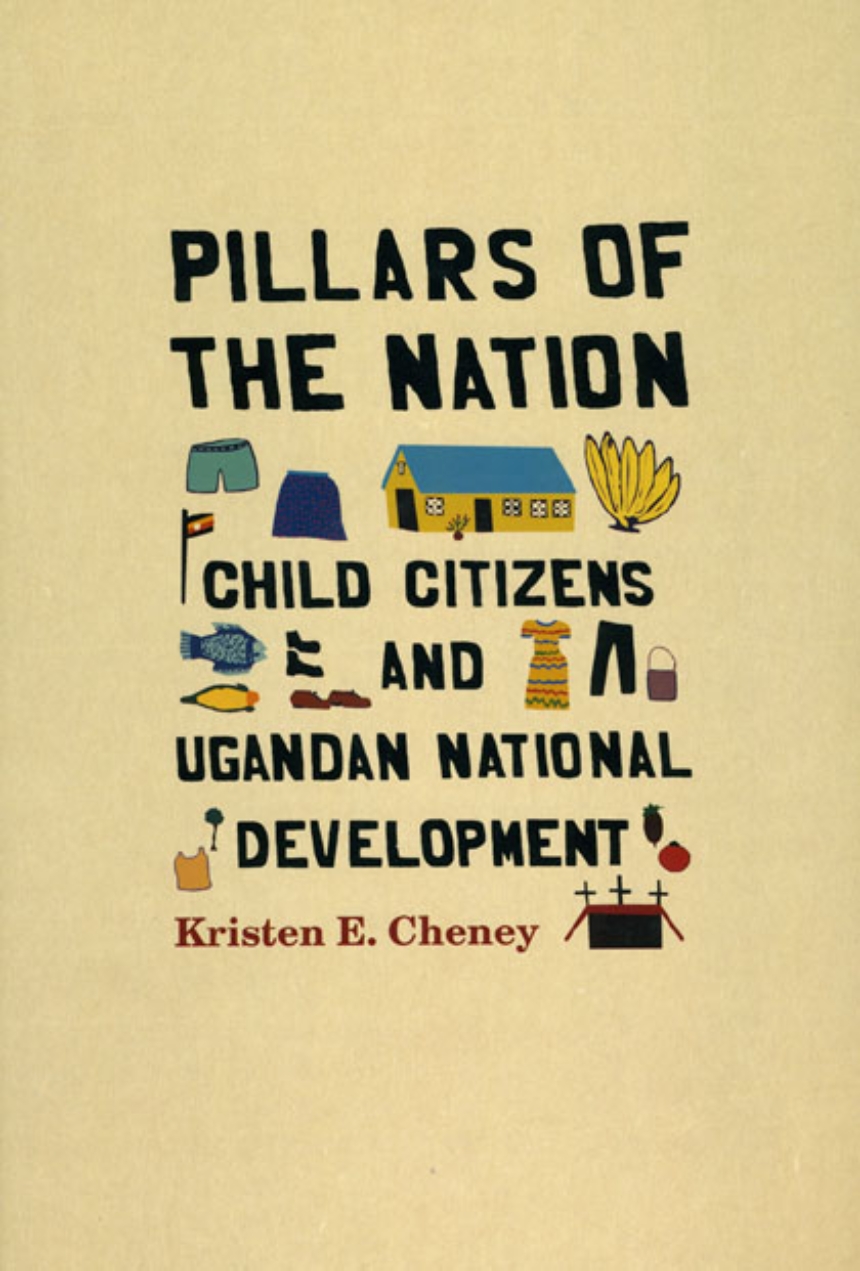Pillars of the Nation
Child Citizens and Ugandan National Development
Pillars of the Nation
Child Citizens and Ugandan National Development
How can children simultaneously be the most important and least powerful people in a nation? In her innovative ethnography of Ugandan children—the pillars of tomorrow’s Uganda, according to the national youth anthem—Kristen E. Cheney answers this question by exploring the daily contradictions children face as they try to find their places amid the country’s rapidly changing social conditions.
Drawing on the detailed life histories of several children, Cheney shows that children and childhood are being redefined by the desires of a young country struggling to position itself in the international community. She moves between urban schools, music festivals, and war zones to reveal how Ugandans are constructing childhood as an empowering identity for the development of the nation. Moreover, through her analysis of children’s rights ideology, national government strategy, and children’s everyday concerns, Cheney also shows how these young citizens are vitally linked to the global political economy as they navigate the pitfalls and possibilities for a brighter tomorrow.
288 pages | 14 halftones, 2 maps, 1 figure, 4 tables | 6 x 9 | © 2007
Anthropology: Cultural and Social Anthropology
Education: Comparative Education
History: African History
Sociology: Individual, State and Society
Reviews
Table of Contents
Introduction: The Role of Ugandan Child Citizens in the Struggle for National Development
Chapter 1: Global Rights Discourses, National Developments, and Local Childhoods
Part One: Crucial Components of Child Citizenship
Chapter 2: “Education for All”: The Dilemma of Children’s Educational Attainment, National Development, and Class Mobility
Chapter 3: “Speaking the English of a Ugandan Person”: The Intersections of Children’s Identity Formation
Chapter 4: Children’s Political Socialization: Engagement and Disempowerment
Part Two: Actualizations
Chapter 5: “Village Life Is Better Than Town Life”: Identity, Migration, and Development in the Lives of Ugandan Child Citizens
Chapter 6: “Our Children Have Only Known War”: The Predicament of Children and Childhood in Northern Uganda
Chapter 7: “Did the Constitution Produce My Children!?” Cultural Production and Contestation in Uganda’s National Primary School Music Festivals
Epilogue
Notes
References
Index
